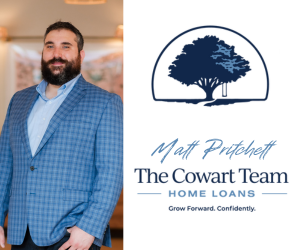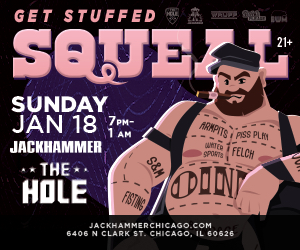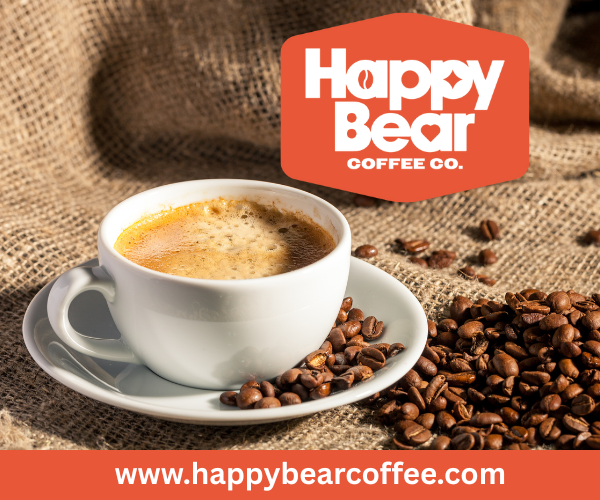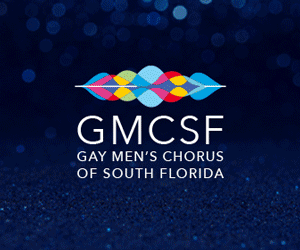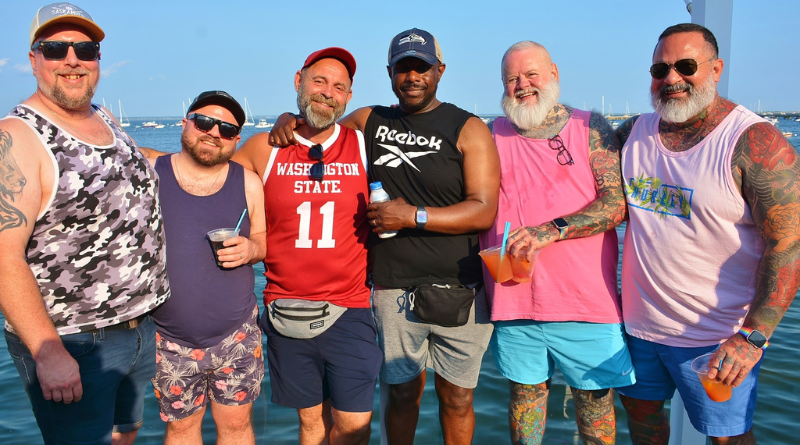
Bear Tracks: Provincetown Bear Week
On summer break in August 1976 my partner Dennis and I went to visit friends of his in Boston. I had only recently come out and was just beginning to explore the gay world, a subculture that still existed mostly in the shadows of society. But here young gay men were openly cruising each other–along Charles Street and in the Downtown Crossing T station. I discovered Sporter’s, a cruisy gay bar on Beacon Hill, and the Boston Eagle in the Fenway. I dropped in the Charles Street (Quaker) Meeting House, a safe space for gays and lesbians at the time. I picked up my first copy of Gay Community News there. The Meeting House is located at the corner of Mount Vernon and Charles Street. My friend Ruth currently lives on Mount Vernon Street one block up. Whenever I step out her front door the meeting house is there, always reminding me of that visit in 1976.
We met Patrick, a local gay man, at Stone Soup Gallery. This was a neighborhood institution, a combination stage, poetry store, and safe space for gays and lesbians. Its owner Jack Powers was a longtime poet friend of my partner. In those days it seemed practically everyone under thirty either played the guitar or wrote poetry. Patrick showed us around gay Boston. At one point he took us to the Boston Harbor waterfront. He pointed east. “At the tip of Cape Cod across Massachusetts Bay is a place where everyone is free to be themselves. It’s called Provincetown. Everyone there is gay.”
I can still recall that moment clearly, fifty years later—the excitement it stirred in me, the vision of a place where I could live among my own kind, a place where, like Dorothy Gale, I believed, my dreams would come true.
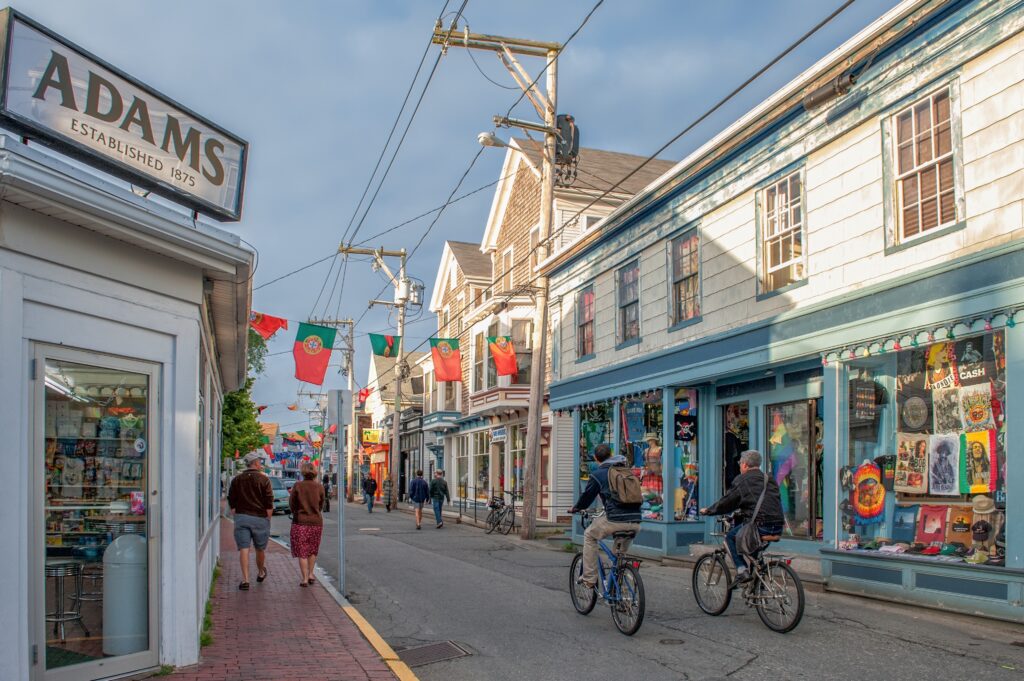
I would wait a good seventeen years before I visited Provincetown for the first time. I had been living in the Castro for about fifteen years, my dream of living in a gay community had come true, but AIDS was radically changing what that meant. In 1993 I moved to Boston for a full-time tenure-track teaching job. Mount Ida College was a small liberal arts college, which had begun as a women’s finishing school. It still bore the nickname “Mount Mattress,’ from a time long gone, when Mound Ida women put out for Harvard men, hoping to snag one as a husband.
Back home in San Francisco my good friend and fuck buddy Bud Vadon was diagnosed with full-blown AIDS. He drew up a bucket list of what he hoped to accomplish in the short time he had remaining. It included visiting Provincetown. Bud flew to Boston and I drove us to Ptown, where I had booked us in a guesthouse in the West End. Upon arrival I was underwhelmed. Commercial Street was a lot like Castro Street but surrounded by water instead of the magical city of San Francisco. Bud and I got crabs from the sheets in the guesthouse. I found a nasty note tucked under the windshield of my car. It read “This is a private parking space. Move your car — or else.” My first-time Provincetown experience was capped off when Bud and I went to the Vault, a leather bar on Commercial Street. We made out with each other in what we thought was the safety of a leather bar. Almost immediately one of the bartenders came over to us and told us to leave—our behavior was inappropriate. When we got outside we just laughed and laughed. I found Provincetown even more underwhelming.
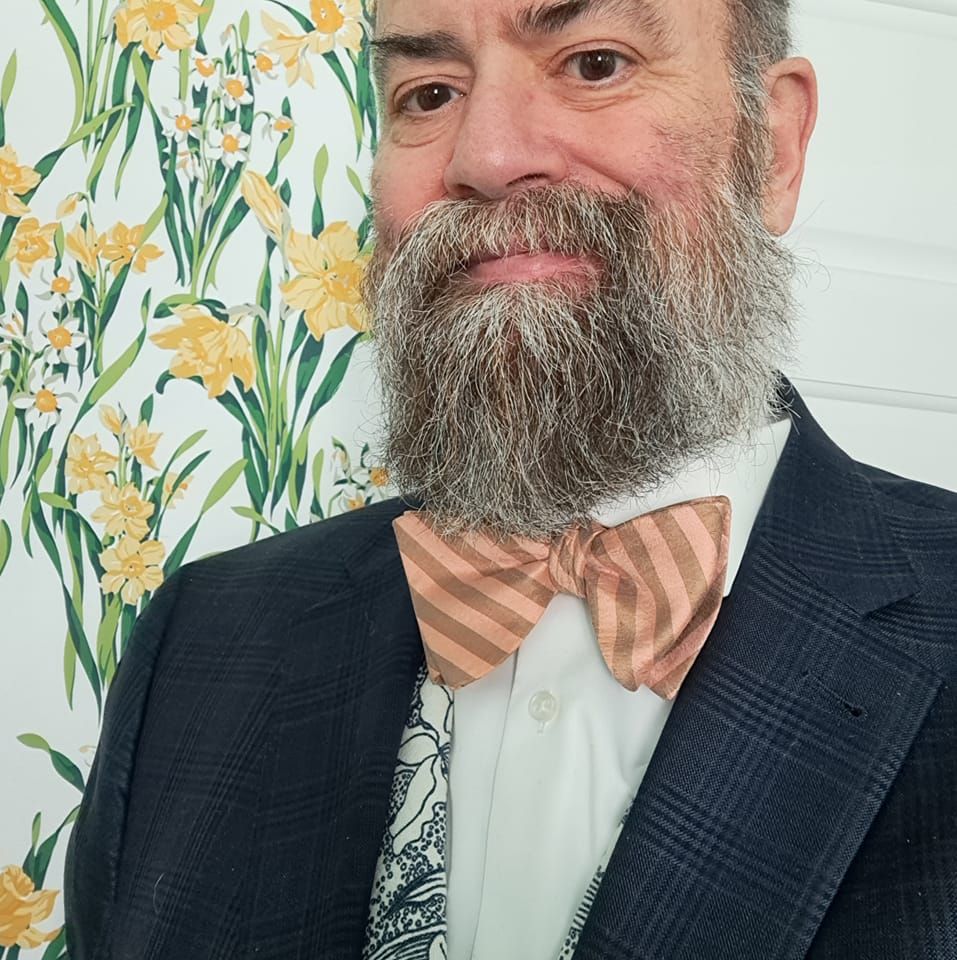
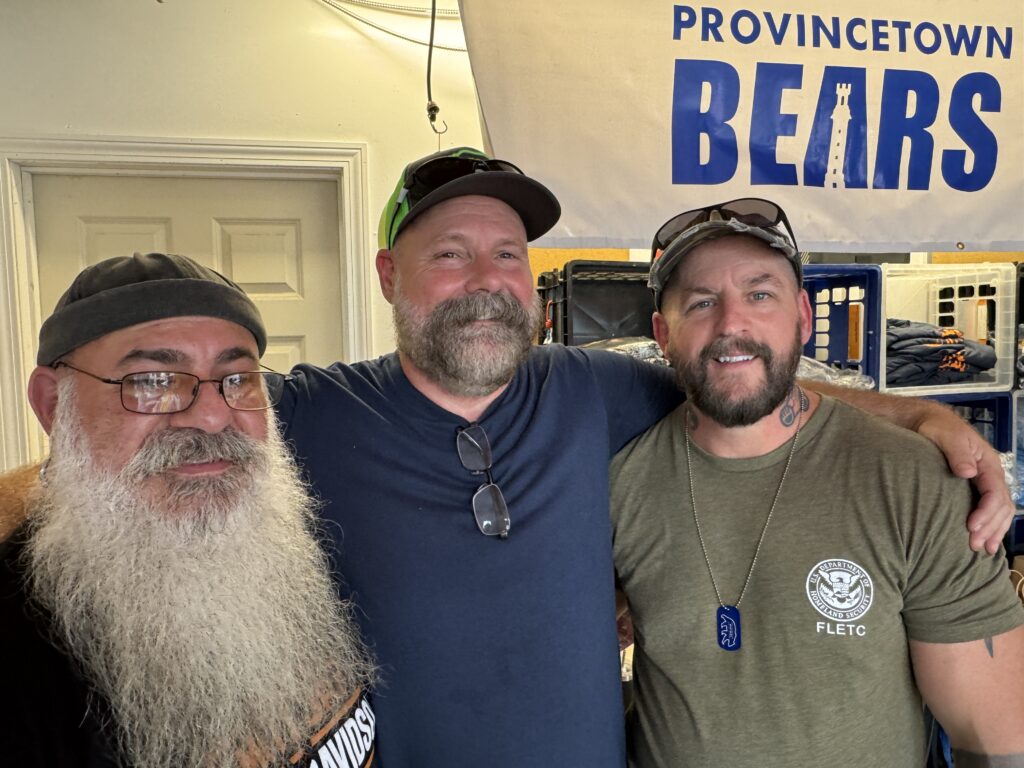
A few years before that visit I had met John Burrows, a guy living in Boston. We met at International Bear Rendezvous in San Francesco; we were waiting for the shuttle bus to take us from the host hotel to the Lone Star Saloon. John recognized me as the guy who was working on bear history. I was at IBR that year mainly to conduct interviews and network. John asked me about my work and our conversation soon broadened. I learned he was a lover of Victorian culture, enjoyed wearing Victorian-era garb, and was an expert on the English and Scottish Arts and Crafts movement, a passion we shared. John was a restoration designer–hundreds of historical homes and buildings in the US bear his designer imprint. I found John delightfully eccentric and we bonded immediately.
When I moved to Boston in 1993 John and I became friends. John lived in a completely restored Federalist house in Rockport, MA. He also spent a great deal of time in Provincetown. He lived in Tower House a few doors from the Atlantic House bar on Masonic Place, and ran, as I recall, an Arts and Crafts fabric shop next door. Our mutual friend Dave Thompson, who I had dated briefly in San Francisco, was at that point a year-round resident. One evening at John’s house he, Dave, and I were grousing about the absence of bear visibility in Ptown. We decided to form a bear club. Membership was simple. Anyone who came to Provincetown and called himself a “bear” was a Provincetown Bear. A few months later I dropped out of our fantasy club because I lived three hours away. Soon thereafter John (and unbeknownst to me, along with his then partner Nelson Villafane) took the incentive to create Bear Week. In 2025 Bear Week will celebrate its 25th anniversary.
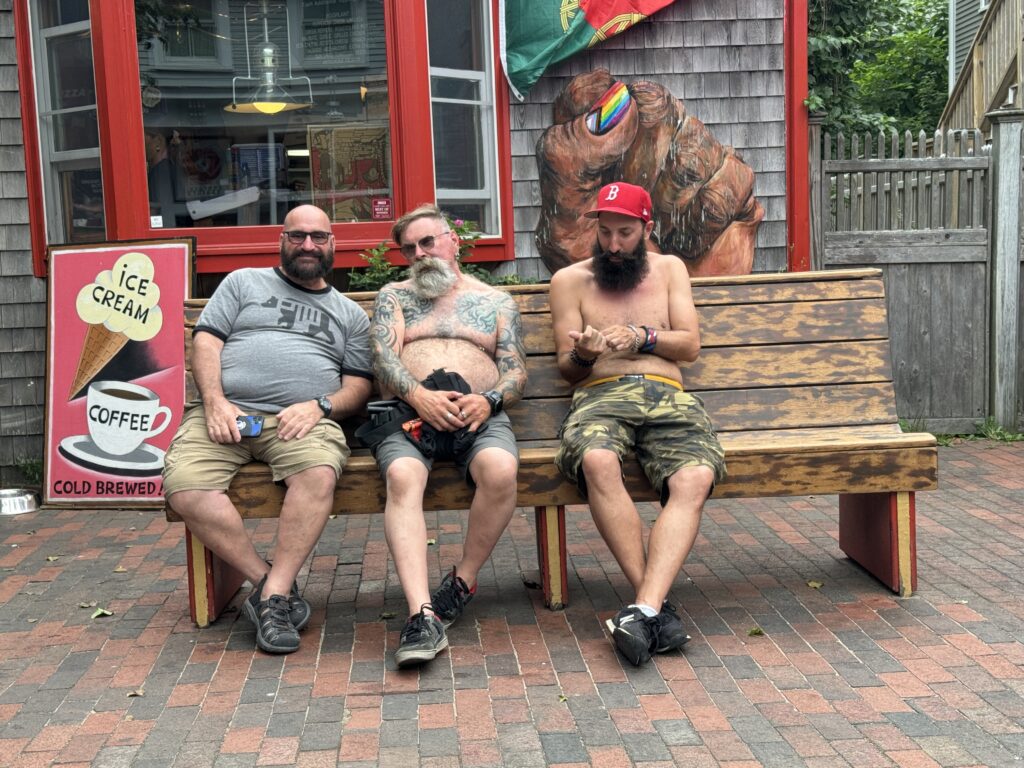
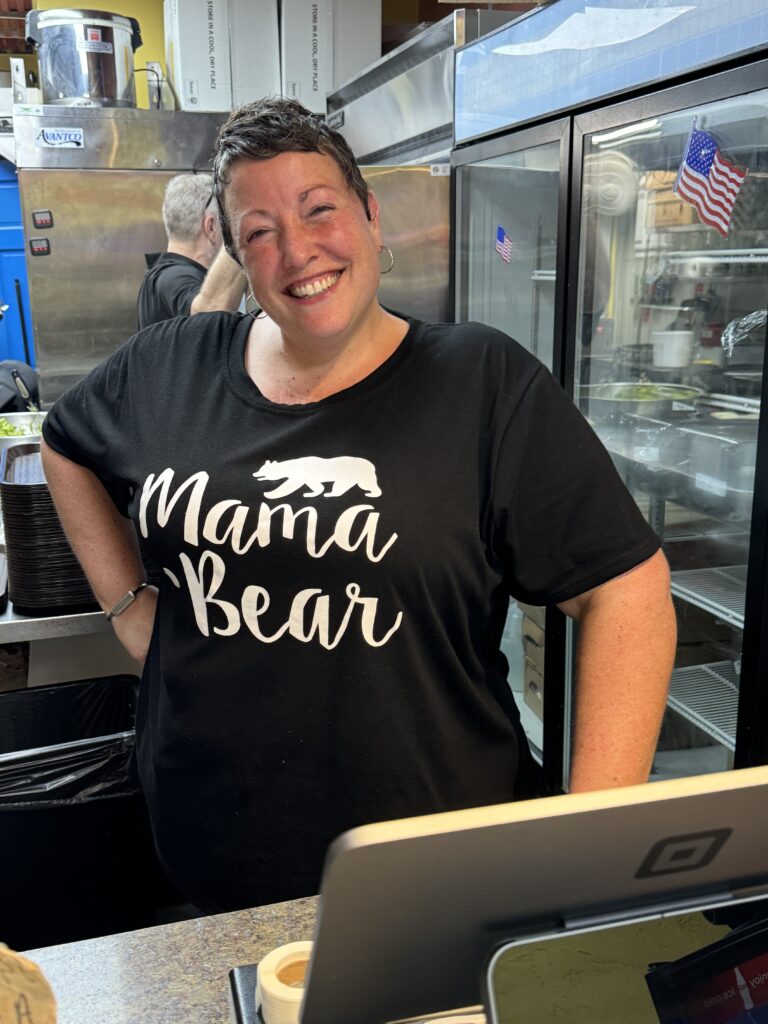
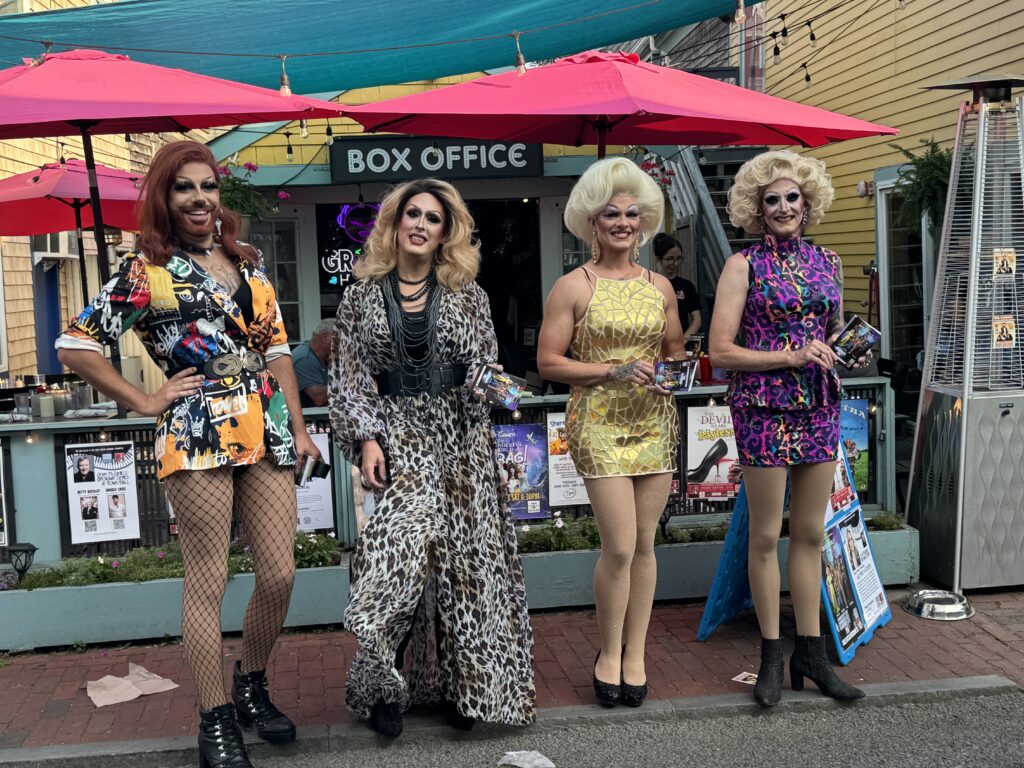
During the twelve years I lived in the Boston area I visited Provincetown frequently, staying with Dave and his partner Tom Padden. (Tom later committed suicide in the Pilgrim Monument and Dave died in Florida of natural causes.) I especially enjoyed visiting in the winter, when everything is closed and Ptown becomes a small village of permanent residents. I went to Bear Week almost every year, until I moved back to San Francisco in 2005. After that the reality of Bear Week’s price tag caught up with me. All four of my Bear Week stays since then have been made possible thanks to generous friends. And I have always sung for my supper. For my first sponsored visit I brought my Bear Icons art exhibit to town. John Burrows sponsored my second visit, having invited me to give a talk on bear history. My third visit was precipitated by Amy Raff’s invitation to me to do a book reading and book signing of my newly published autobiography Resilience: A Polemical Memoir of AIDS, Bears, and F*cking at the Provincetown Public Library.
John was always committed to the original spirit of bears—the practice of acceptance and inclusivity. The early, and passing, phase of “muscle bear entitlement” led John to never institute a bear contest. The first bear contests were, typically, a playful camp of leather contests. They transitioned to something akin to traditional beauty contests, like the Miss America Pageant. Since then bear contests have morphed again. Contestants are evaluated by how they live the values of inclusivity, their work educating the broader queer community about bears, and their involvement in charity work.
John was also committed to LGBTQ+ social acceptance and legal rights. When he saw The Boys in the Band, he once told me, he was so horrified by what he thought all gay men were like—bitchy, pathetic, self-loathing—the film kept him in the closet for years. Undoubtedly, this experience fueled his commitment to fighting for LGBTQ acceptance and to celebrating bears in all our diversity.
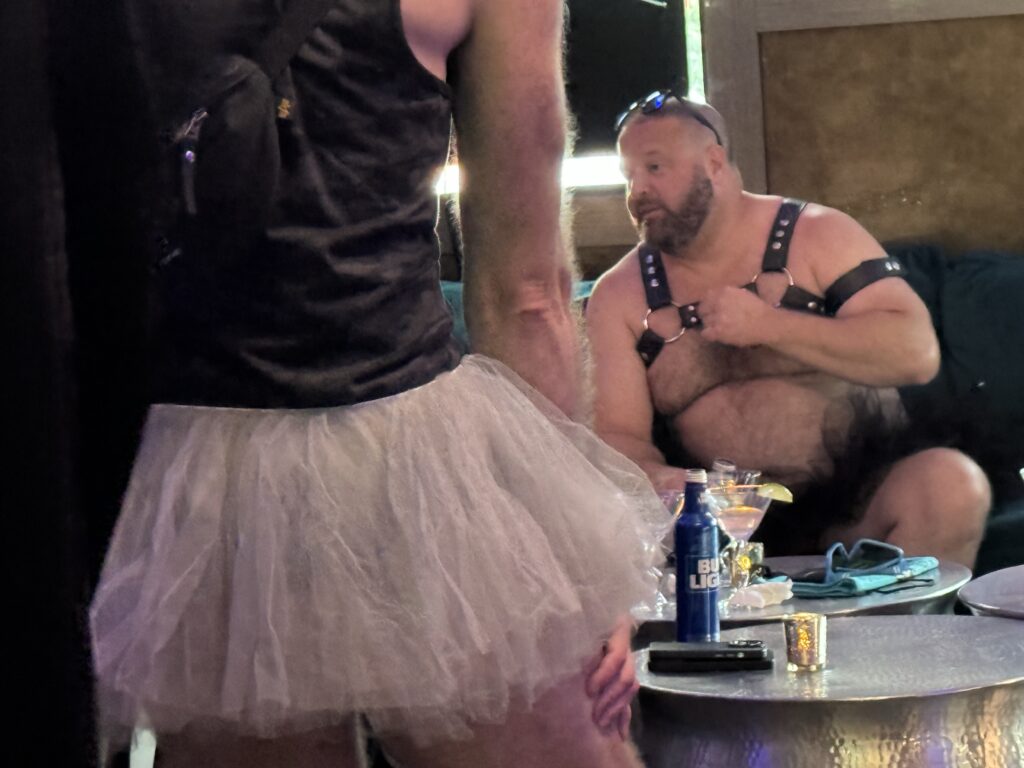
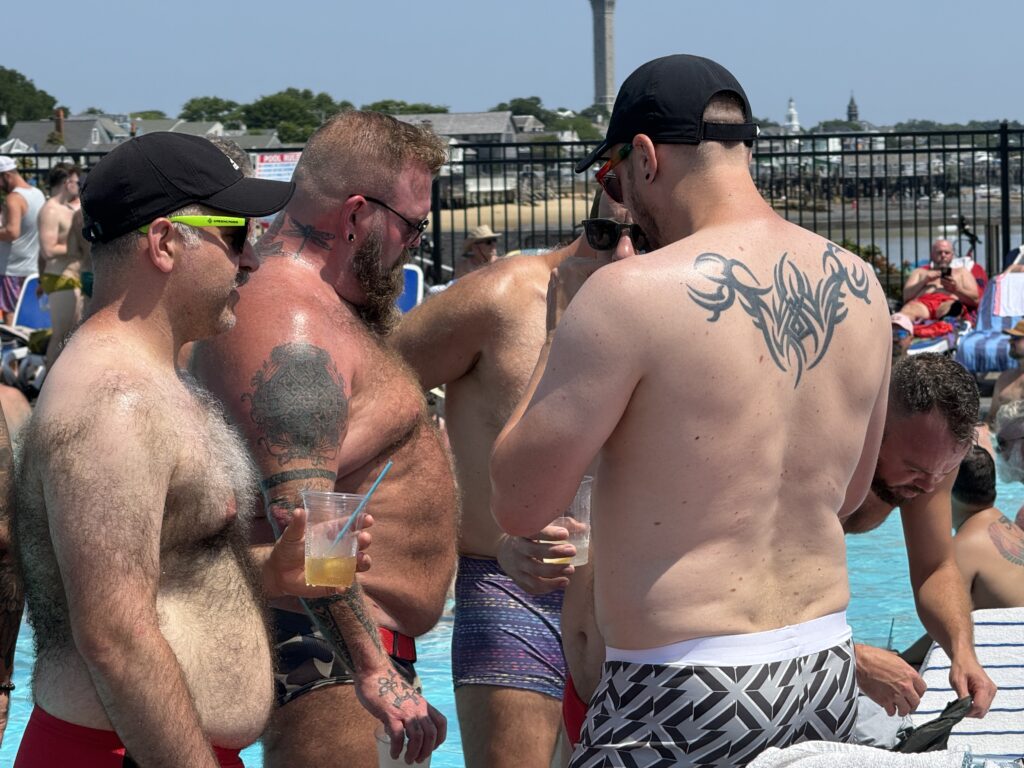
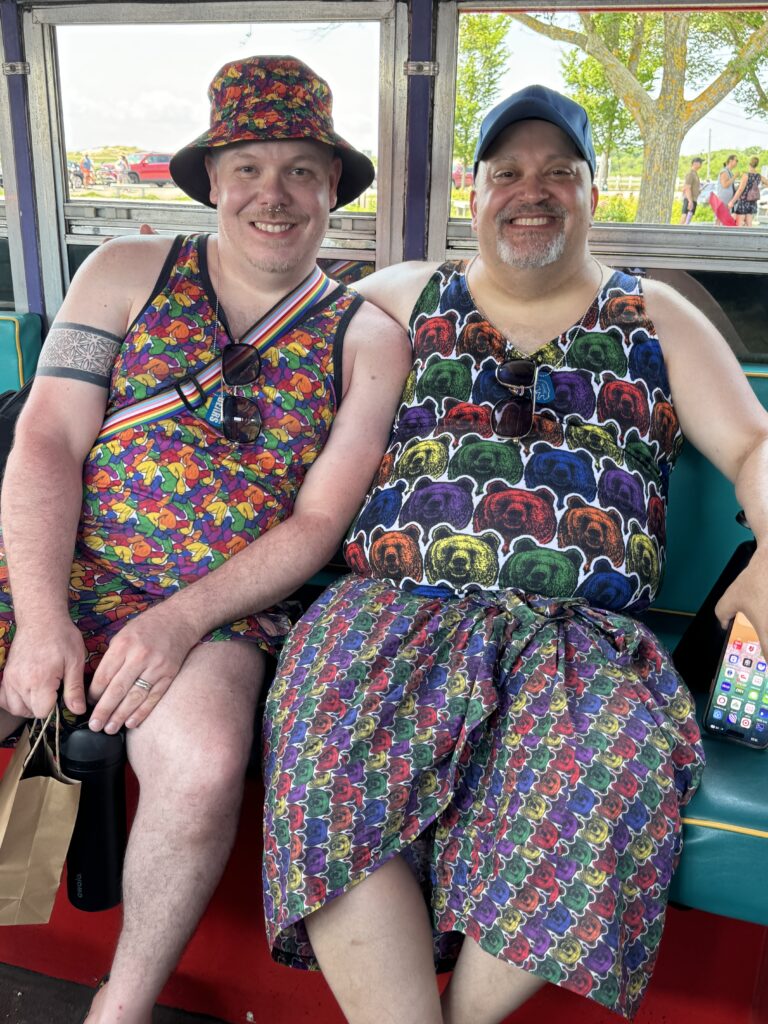
Shortly before Bear Week 2023 John died unexpectedly, leaving all of us in shock. Covid had stopped Bear Week. It was not clear how, or whether, Bear Week would continue The 2023 event, the first post-covid Bear Week, was an experimental, scaled-down version of what Bear Week had been. An impromptu John Burrows Memorial BBQ was organized. It was held again this year (2024). It was a small, casual event, set up behind a very large pool party. I had to ask someone at the pool party where the BBQ was. It is my hope that in future the BBQ will have a little formal structure with someone speaking about John and his legacy. There were many first-timers this year, who no doubt had no idea who John was. Given the presence and awareness of history in Provincetown (it’s where the Pilgrims first landed) and John’s own meticulous attention to history, I think that would be an appropriate tribute to John’s memory and values.
Provincetown Bear Week is an important crossroads for the bear community. Bears from all over the world come to celebrate, cavort, butch it up, and camp it up. This year tea dances, pool parties, and late nights in the bars were interspersed, among other things, with drag shows (drag bears are now a thing—a big thing), Charlie Hunter’s art show and reception, Bear World Magazine’s Award ceremony, and out and proud bears of every shade of queer diversity hanging out on Commercial Street. As always, the local merchants were very happy. The locals always look forward to Bear Week because we are the friendliest crowd that comes to town.
The Provincetown Bears are an all-volunteer group and spend nearly a year organizing Bear Week. They also fundraise at Bear Week and make significant donations where needed in the Provincetown community. This year, thanks to the generosity of the Provincetown Bears, I was able to do to substantial bear history work—oral history interviews, in-person networking, and getting an accurate feel for Bear Week in its current iteration. What I experienced was a slice of a community that has matured over its forty-year existence. Core values remain, diversity has expanded, and bear identity and community have spread into distant corners of the world. Bears are now sometimes singled out as a model for community practices and values for society at large.
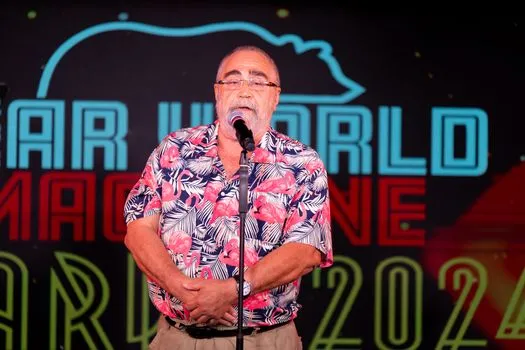
On a personal note, it did my soul (and ego) good to receive Bear World Magazine’s Bear Icon 2024 Award, recognizing my work. It’s official: I am now a “cultural icon,” just like Dolly Parton. I will be consulting with her on how to handle this.
The Boston Globe carried Erin Clark’s glowing coverage of the 24th Provincetown Bear Week. Being covered by a major mainstream newspaper says a lot about bears. Erin interviewed Bear Week attendee Robert Carito, who expressed some concern about his presence at Bear Week this year. He reports he has shed forty pounds, shaved off his body hair, idolizes Barbie, and wears pink all the time. He was concerned he might not be a bear anymore.
Bears are, and have always been, self-defining. If you say you are a bear, you are a bear, regardless of how much hair you have or what the size of your body is—even, or especially, if you wear pink and love Barbie.






